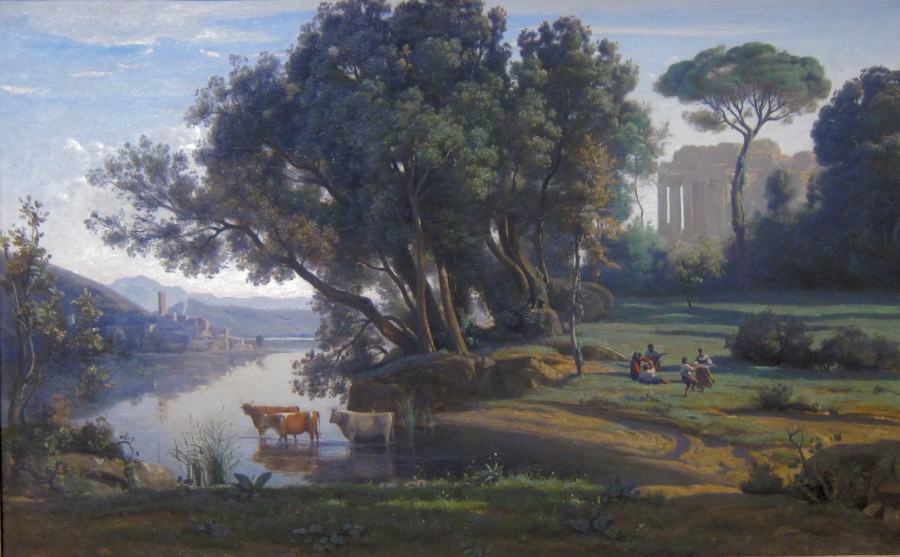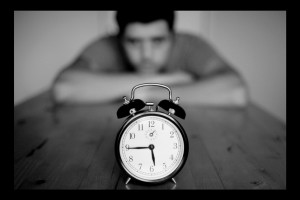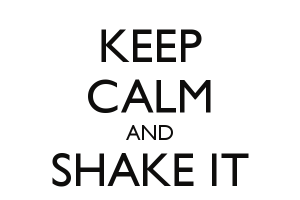One morning, my brother Googled “Bible verses for anxiety.” Many of the people closest to him were being affected with crippling anxiety and he wanted to know how to help. 18% of American adults suffer from diagnosable anxiety disorders, and many more of us regularly experience anxiety of differing degrees and types.
I want to add to the long list of explanations and solutions this thesis: We can find hope knowing that anxiety is at the very center of the biblical story of man’s fall and that rest is at the very center of God’s plan for redemption. Below is my five-point recommendation for reading Genesis 1-11 as the origin story of anxiety and the promise of rest.
1. The chief experiential result of Adam and Eve’s sin is anxiety. Or so argues Old Testament scholar, Walter Brueggemann. Thinking theologically, or in the light of the New Testament, we know to talk in terms of “original sin,” “death,” or “depravity.” But Genesis 1-11, of course, was written far earlier. Having sinned and “knowing good and evil,” man and woman hid from and lied to God and conditioned themselves to be ashamed of their nakedness. Self-conscious reflection, once an act of gratitude, became unbearable.
2. The next experiential result of sin is restlessness. In Genesis 3, sin just meant disobedience; by Genesis 4 and following, sin was both disobedience and violence (4:8, 23; 6:11). Cain, the first offspring of the woman, the first Son of Man, humanity’s first shot at bringing rest, didn’t. Understanding the wages of his sin and his failure to do good, Cain laments, “I will be a restless wanderer on the earth.” (4:14)
3. Noah, the first redeemer, was supposed to bring rest. Although that’s not said explicitly, it’s implicit in that the Hebrew name, “Noah,” is derived from “נוֹחַ,” which means to rest or settle. But not even Noah did the job. The world’s new hope, its first “second Adam,” the father of all our race, failed too. In restlessness, Cain murdered; in restlessness, Noah passed out drunk. (9:21) Humans will try anything to rid themselves of that feeling.
4. The end of all genealogies is rest. In Genesis 1-11, there are two types of genealogies, or toledot, that make up about one-third of the text: genealogies of days (1:2-2:3) and of persons (5:1-32, 10:1-32, 11:10-32). The purpose of both is to point ahead to their respective fulfillments. The fulfillment of the genealogy of names, continued throughout the Old Testament and ended in Matt. 1:1-17 and Luke 3:23-38, is Jesus. The fulfillment of the genealogy of days, in Genesis 2:3, is rest. Jesus is the better Son of Eve than Cain and the better “נוֹחַ” than Noah. Come, Thou long-expected Jesus, born to set thy people free. From our sins and fears release us; let us find our rest in Thee.
5. The Tower of Babel is the product of human anxiety. Generations later, humankind is as far as ever from knowing their Creator. These men lived without the direct commands of God and opportunities to repent given to Adam, Cain, and Noah. Like Cain, they feared becoming “restless wanderers on the earth,” and so they rallied around a unifying human idea and monument, lest they “be scattered over the face of the whole earth.” But just as God cursed the ground (3:17), he cursed the work of the ground (11:8-9), restating half of his promise: Nothing you accomplish will satisfy the deep restlessness you feel within you.
As comforted as I am by Bible verses about anxiety, I am even more comforted knowing that although the wages of sin is deep restlessness and anxiety, the center of God’s redemptive plan is to give his people rest. With that said, I’d like to recommend three takeaways:
1. Own your anxiety like you own your sin. In Christ, God moves to forgive our sin and to alleviate its experiential effects.
2. Read Hebrews 1-6 in one sitting. Here, Jesus is painted not as the better Cain, or the better Noah, but the better Moses. The Pentateuch is the epic tragedy of Moses’ inability to lead his people into rest, despite God’s faithfulness and power. Because Jesus, the founder of a better covenant, does lead his people into rest, we ought to pay attention to his salvation and obey his word.
3. Know that every anxious, restless night is nothing other than an invitation to join Christ in prayer to the Father.





Leave a Reply
Your email is safe with us.